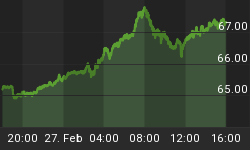Bitmain’s main competitor Canaan, a China-based cryptocurrency mining equipment manufacturer, is expected to complete a $1 billion initial public offering (IPO) later this year with the support from Morgan Stanley, Deutsche Bank, Credit Suisse Group AG, and CMB International Capital.
Originally Planned to Initiate IPO in China
With an annual profit of around $50 million, by seeking a $1 billion valuation, Cannan would be conducting its IPO based on a price/earnings (P/E) ratio at 20, which is relatively low for a technology company. According to Nasdaq, Twitter CEO’s payment company Square has recorded a P/E ratio of 1,052 in 2018 in the US stock market while software company Hubspot recorded a P/E ratio of 388.
Canaan, best known for its bitcoin mining equipment line Avalon, has been able to secure more than 15 percent of the global cryptocurrency mining equipment market share and evolve into one of the few competitors against Bitmain.
Jianping Kong, the co-chairman at Canaan, said in early April during an interview with Reuters that its affordable mining equipment has appealed to large-scale mining pools in regions like Norway, Canada, and west China, where cheap electricity is readily available due to an abundance of clean energy. Related: Are Markets Showing Signs of A Topping Pattern?
Kong also emphasized that the company has purposely planned for an IPO outside of mainland China to sustain its global brand and distributors outside Asia. Other major conglomerates based in China such as Oppo and Lenovo have shifted away from targeting mainland China and focused on expanding their ventures globally.
Initially, Canaan wanted to conduct its IPO in mid-2016, when the cryptocurrency market was still at its infancy. But, the company had to cancel its plans to pursue an IPO in mainland China because of a regulatory deadlock. Kong noted that the case was irrelevant to the crackdown on bitcoin by the Chinese government and local financial authorities, adding that IPOs in mainland China often take longer periods to materialize than other regions.
In late 2017, the Chinese government officially banned cryptocurrency trading and investment, requesting local cryptocurrency exchanges to halt their services. Local analysts attributed the controversial decision of the Chinese government to its fears in regards to capital controls and its national currency yuan leaving the country to other major regions like the US.
China has generally been optimistic towards blockchain technology and the cryptocurrency industry, as seen in the government’s reluctance to crackdown on mining companies and mining equipment manufacturers like Bitmain and Canaan.
Related: Iran Looks To Bitcoin As Rial Tumbles
More importantly, in May, the Chinese government released its public blockchain rankings that ranked Ethereum as the best blockchain network in the world based on its applicability and technology. Analysts suggested that if the Chinese government cracked down on the cryptocurrency industry due to their decentralized nature, it would not have ranked an open and decentralized blockchain network like Ethereum as the top blockchain protocol.
Profit Margins to Drastically Change
Several studies in South Korea and Japan have revealed that in a period of volatility, it is a better investment to purchase mining equipment and produce cryptocurrencies rather than directly investing in digital assets like bitcoin and Ethereum.
Many investors in South Korea have started to run cloud mining software on their GPUs and ASIC miner racks, to produce emerging cryptocurrencies with small market caps.
The rise in demand for cryptocurrencies and the exponential growth rate of the blockchain sector could allow a company like Canaan to also demonstrate rapid progress in the long-term.
By Joseph Young via Crypto Insider
More Top Reads From Safehaven.com:
















